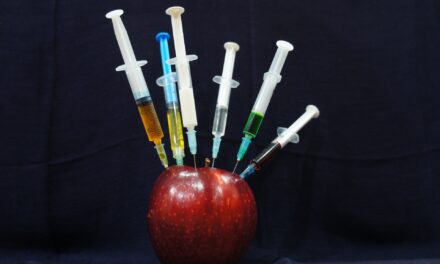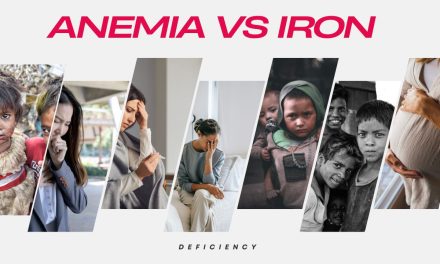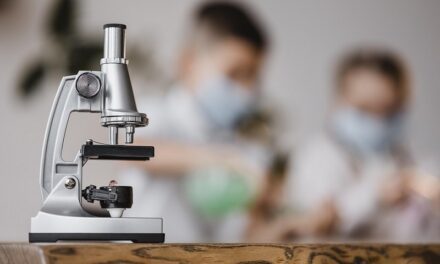Hello world, my name is Md. Saiful Islam and I’m a paramedic. Today I’m here to taking you How to Use a First Aid Kit box. How to use some of the standard contents of a first-aid kit.
Intro of first aid kit box
How to use a first-aid kit box. What your first-aid course didn’t teach you brought to you by heart-to-hearts first aid and CPR services and first aid CPR products calm having a first aid kit is an important part of being prepared for any emergency situation keep a first-aid kit easily accessible and fully stocked and remember to replace used and outdated contents regularly.
Learning objectives
- What is Fast aid kit box
- Where it used
- How to use Fast aid kid box

Contains of first aid kit box
Let’s begin by getting familiar with some of the standard contents of a first-aid kit. A first aid kit should contain :-
- An instant cold compress scissors
- Disposable gloves
- Adhesive tape
- Antiseptic wipes
- Triangular bandages
- Roller bandages
- Sterile gauze pads
- Adhesive bandages
- Antibiotic ointment
- Trauma pads
- Latex free elastic wrap
- Pressure bandage
- Tweezers and
- An emergency blanket
Some first-aid kits also contain Breathing barriers used when giving rescue breaths for CPR protective equipment.
Firstly before using first aid kit box,
Gloves are an essential part of any first-aid kit use gloves whenever possible while performing first aid gloves help to keep a barrier between you and potentially infectious bodily fluids to correctly remove gloves peel the first glove off from the wrist turning it inside out to remove.
Secondly
The second glove grab it from the inside at the wrist and roll it off making sure you do not come into contact with the outer surface use a biohazard bag. For any contaminated materials for broken glass or for needles a sharps disposal container should be used contact your local Health Authority to learn how to properly dispose of these materials CPR breathing barriers are used to protect.
The rescuer when giving rescue breaths it will help prevent blood saliva or vomit from getting into the rescuers mouth a pocket mask is 90% more effective than mouth-to-mouth to use it. Simply place the mask over the person’s nose and mouth ensure you have a tight seal open their airway and ventilate each breath should last one.
Second for a baby or a child you can still use a pocket mask simply invert the pocket mask. So that the point of the barriers toward their chin secure and ventilate some types of disposable barriers come complete with non latex gloves antiseptic wipes and the breathing barrier to use a disposable breathing barrier.
Thirdly
Simply take the mouthpiece and place it inside the person’s mouth peel back the plastic tilt the head back and then ventilate minor cuts and scrapes for minor cuts and scrapes follow these first-aid steps clean treat cover and protect germs usually enter the body through a natural orifice such as the nose or mouth. But they can also enter the body through a break in the skin in the case of minor wounds where there is only surface damage and little bleeding wash.
Fourthly
The wound with soap and water if possible rinse the wound for five minutes with clean running water. You can also use antiseptics found in a first-aid kit to clean wounds antibiotics are used for treating cleansed injuries. Before applying bandages and covering in first aid apply an antibiotic cream. If the person has no allergy to it for smaller wounds use a simple adhesive bandage that can come in all different shapes and sizes. The knuckle bandage is shaped like the letter H a knuckle bandage is placed over the top of the knuckle to treat a typical knuckle cut or scrape. The four adhesive strips are wrapped around the finger above and below the knuckle.

This allows the joint to bend without interfering with the bandages position to properly apply a fingertip bandage.
First how to use
stick one end of the bandage to the finger then pull it over the fingernail and secure the flaps in place.
Two
Two of the most important items in any first-aid kit are gauze pads. And gauze rolls square gauze pads come in different sizes. So use the appropriate size to cover a wound use a gauze roller bandage to secure the dressing in place. You can even use first-aid tape to secure all four sides of a square gauze pad. Basic first-aid tape is found in almost any first-aid kit or cabinet. It can stick easily and can be torn without scissors use first aid scissors to cut tape or bandages at an appropriate length.
Here are some examples of different first aid scissors and shears. These scissors are designed to protect the skin while removing clothing or cutting bandages wraps or tapes. When do we need stitches are usually needed when there is a complete separation of both skin layers. The edges of the skin do not fall together and the wound is larger than a half to one inch. If you anticipate a delay in getting the person to the hospital use steri-strips. Or butterfly bandages to help keep the skin flaps together. And bandage as usual impaled object for minor impaled objects like a splinter use tweezers to help remove the object.
Three
You can use specific products like splinter out it’s better than a needle. Because it’s sterile and has a point that is designed for loosening and pulling out splinters. There are a variety of tweezers to choose from some even come with a bang defying glass major external bleeding. Major bleeding can be life-threatening as it reduces the blood flow to the vital organs. And can result in death to treat major external bleeding. Apply direct pressure to the area with a sterile dressing or clean cloth secure. The dressing in place with a bandage bleeding from an artery is profuse and life-threatening since arterial blood is oxygenated. It appears bright red in color and will spurt to the beat of the heart.
Therefore it is imperative that we direct pressure immediately using bulky dressings as severe bleeding can cause rapid shock. And is more difficult to control severe injuries require special consideration.
These products are designed to stem heavy blood loss direct pressure to the area to control the bleeding. If bandage becomes blood-soaked do not remove it and simply add another dressing in place.
Four
Here we have an abdominal pad ,we have trauma dressings. We have the blood stopper and my favorite is a pressure bandage. Which is a dressing and a bandage all in one Shaak extensive internal. Or external bleeding can cause the person to go into shock the loss of blood leads to low blood volume. And decreased oxygen supply to the vital organs elevate the legs. Above the level of the heart cover the person with the solar. Or emergency blanket to maintain normal body temperature. An emergency blanket can reflect back 90% of the body’s Heat amputations. If a body part has been completely cut off direct pressure. And control the bleeding find the body part and wrap it in sterile gauze or a clean cloth. Place the wrapped body part in a bag of ice and seek medical attention immediately.
Five
As they may be able to reattach the amputation closed. Wounds in the case of a minor closed. Wound cold can help control both pain and swelling to use an instant cold pack. First shake squeeze to break the inner bag shake to mix and apply no barrier. Between the instant cold pack and skin is needed cold can also be used to treat a bone muscle. Or joint injury to review how to use an instant cold pack, simply shake squeeze to break the inner bag.
So the contents can mix and apply the elastic eye securing wrap is ideal for holding ice or hot or cold compresses in place over an injury cool the affected area for 20 minutes. Every hour for the first 24 to 48 hours let’s learn how to apply a sling triangular bandages.
Six
A re-commonly found in first aid kits and can be used to provide a mobilization. And support to an upper body injury. For upper-body injuries you can apply a sling place a triangular bandage underneath the injured arm. The top point of the triangle should be towards the injured elbow wrap bandage. Securely to support the injured body part. Tie both ends of the bandage behind the neck twist or pin excess bandage around the elbow. Make sure the sling covers the entire arm with fingers. Slightly exposed for extra support secure abroad transport bandage to stabilize.
Seven
The sling a latex-free elastic wrap is another product used to provide a mobilization. And support wrap the bandage from below.
The injury working upwards while maintaining tension throughout use the clips provided to pin the bandage in place. There are a variety of splints that are designed to mobilize smaller body parts to immobilize.
An injured finger place a tongue depressor underneath the finger. And use first-aid tape to secure the splint in place burns. A first-degree burn damages only the top layer of skin and can be painful. May swell a second-degree burn damages both layers of the skin the burned skin is red. And has blisters that may be open and leaking fluid scarring.
May occur a third-degree burn destroys both layers of the skin. As well as nerves blood vessels fat muscle and bone. The skin may be charred black. Or even white cool the burn with water for at least 15 minutes until the pain stops.
How to use the burn
Once you’ve cooled the burn apply a burn cream to relieve pain. And prevent infection to further protect the area cover the burn with a dry non-stick sterile dressing. Burns are one of the most serious types of injuries. Therefore we have a vast selection of burn treatment products first aid burn creams incorporate both antiseptic. And healing properties in a single product burn kits. Contain the basic necessities for specific burn care emergencies.
Learn more about laboratory equipment.
Our kits include
- Burn dressing first aid tape and sterile gauze rolls
- Exam quality gloves
- Nickel-plated scissors heat shields and
- Fire blankets are wrapped around a burn victim
They are used to stop the burn progression ease the pain and protect against airborne contamination.
The American Red Cross burn emergency responder packs include
The American Red Cross burn emergency responder packs include essential supplies to treat and protect minor burns. It’s lightweight design makes it easy to grab pack. And carry our burn spray and burn pump spray with aloevera work to relieve the pain of minor burns. Abrasions skalds even sunburns while also disinfecting the area.
Burn gels are used to soothe and cool minor burns gels form a protective sterile layer. While moisturizing the skin for fast pain relief sterile burn dressings come in various sizes. And help to prevent burn progression without using water. Our burn dressing protects from contamination while it cools comforts. And relieves pain frostbite depending on the circumstances and time of exposure frostbite may occur by itself. Or along with hypothermia frostbite can occur in body parts.

Exposed to extreme cold the water in the skin
That are exposed to extreme cold the water in the skin freezes and swells causing cells to die deep frostbite can lead to the loss of body parts gradually.
Warm the body part by gently immersing the affect area in warm water until it appears. And feels normal place gauze or cotton between the fingers and toes bandaged the area with dry sterile dressings and see a doctor ideal for cold weather activities.
Our sports heat body warmer provides safe and instant heat in convenient air activated packages that fit easily into pockets liners and wraps the ready. Wash self heating wash cloths feature a self warming system that allows the wash cloths to heat without the need of a heat source. The super soft cloths are hypoallergenic latex and alcohol-free.
Learn more about this topic click the link.







Hello! I could have sworn I’ve been to this blog before but after browsing through some of the post I realized it’s new to me. Anyways, I’m definitely happy I found it and I’ll be book-marking and checking back frequently!
This is the right blog for anyone who wants to find out about this topic. You realize so much its almost hard to argue with you (not that I actually would want…HaHa). You definitely put a new spin on a topic thats been written about for years. Great stuff, just great!
Thanks for helping out, fantastic information.
I’ve been absent for some time, but now I remember why I used to love this website. Thanks, I will try and check back more frequently. How frequently you update your web site?
Incredible read! ???? Your insights on [topic] have truly broadened my perspective in ways I hadn’t anticipated. I’ve been monitoring discussions on this subject for a while, but your perspective is refreshingly unique. The way you’ve integrated all the information with engaging narratives is simply brilliant. ???????? Your narrative abilities are outstanding, and the examples you provided were both enlightening and engaging. It’s rare to find a piece that does more than inform but also engages, and you’ve nailed it! I’m particularly intrigued by your point about the idea you presented. It’s given me plenty to think about and has fueled a curiosity I’m keen to explore further. Keep up the fantastic work! I can’t wait to see what topic you tackle next. Your blog is a source of enlightenment and motivation. ????????
Your point of view caught my eye and was very interesting. Thanks. I have a question for you.
Thanks for sharing. I read many of your blog posts, cool, your blog is very good.
I don’t think the title of your article matches the content lol. Just kidding, mainly because I had some doubts after reading the article.
I will immediately grab your rss as I can not find your e-mail subscription link or e-newsletter service. Do you have any? Kindly let me know in order that I could subscribe. Thanks.
Your article helped me a lot, is there any more related content? Thanks!
hello!,I like your writing very much! proportion we be in contact extra about your post on AOL? I need a specialist on this area to unravel my problem. May be that’s you! Having a look ahead to see you.
I’m curious to find out what blog system you are using? I’m experiencing some minor security problems with my latest website and I’d like to find something more safe. Do you have any recommendations?
I truly appreciate this post. I have been looking all over for this! Thank goodness I found it on Bing. You have made my day! Thank you again!
This piece was beautifully written and incredibly informative. Thank you for sharing!
You have a unique perspective that I find incredibly valuable. Thank you for sharing.
Your point of view caught my eye and was very interesting. Thanks. I have a question for you.
Thoroughly insightful read, or so I thought until I realized it was The expertise shining through. Thanks for making me feel like a novice again!
I appreciate the balance and fairness in The writing. Great job!
Appreciate the clarity you bring to this topic. It’s like you’re speaking to five-year-olds, which is perfect for me.